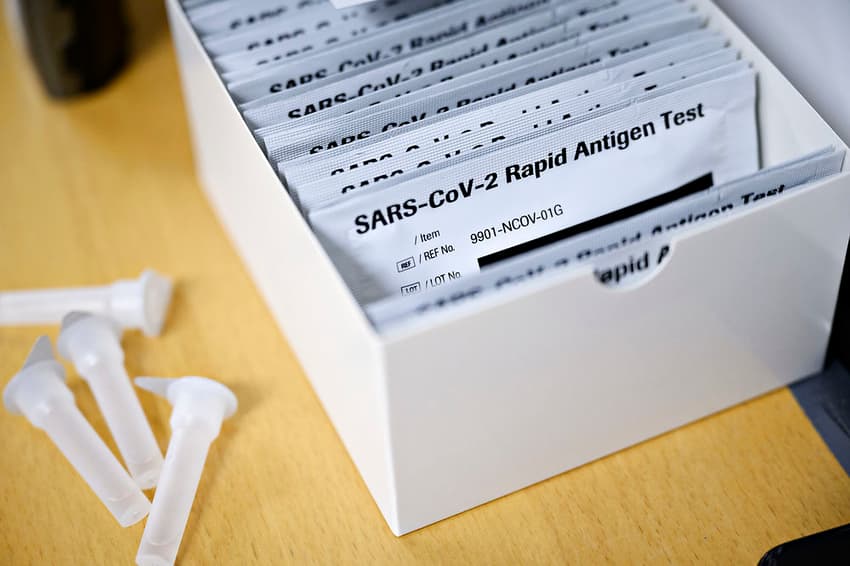Danish regions switch Covid-19 rapid test provider after problems

Problems with provider SOS international have resulted in health authorities cancelling the company’s contract to operate rapid Covid-19 tests.
Denmark’s regional health authorities pay private providers to operate rapid Covid-19 testing, which is offered to the public for free and separately from the regular PCR testing available through the health service.
All of the healthcare regions which had contracted rapid testing to SOS International announced on Sunday that they had cancelled contracts with the company, news wire Ritzau reported.
Another company, Falck, took over rapid testing on Monday. Falck previously operated rapid testing in December and January.
The decision means SOS International will no longer operate testing in Greater Copenhagen, Zealand, Central Jutland or North Jutland. The company will continue to carry out the tests using its staff in Greater Copenhagen during the 30-day notice period.
Another company, Medicals Nordic A/S, was dropped as a subcontractor with immediate effect.
“The regions (health authorities) are very disappointed that SOS International is failing on its obligations,” Central Jutland Region director Anders Kjærulff said in an email reported by Ritzau.
The announcement came after Danish newspapers Politiken and BT reported substandard safety and hygiene conditions at testing centres operated by Medicals Nordic.
Politiken reported single-use gloves not being changed after swabbing and a lack of disinfection of surfaces between tests, while BT wrote that the company had used messaging app Whatsapp to send sensitive patient information.
Southern Denmark, the only region not to have used SOS International, will continue with current provider Carelink.
READ ALSO: Denmark introduces rapid Covid-19 tests at German borders
Comments
See Also
Denmark’s regional health authorities pay private providers to operate rapid Covid-19 testing, which is offered to the public for free and separately from the regular PCR testing available through the health service.
All of the healthcare regions which had contracted rapid testing to SOS International announced on Sunday that they had cancelled contracts with the company, news wire Ritzau reported.
Another company, Falck, took over rapid testing on Monday. Falck previously operated rapid testing in December and January.
The decision means SOS International will no longer operate testing in Greater Copenhagen, Zealand, Central Jutland or North Jutland. The company will continue to carry out the tests using its staff in Greater Copenhagen during the 30-day notice period.
Another company, Medicals Nordic A/S, was dropped as a subcontractor with immediate effect.
“The regions (health authorities) are very disappointed that SOS International is failing on its obligations,” Central Jutland Region director Anders Kjærulff said in an email reported by Ritzau.
The announcement came after Danish newspapers Politiken and BT reported substandard safety and hygiene conditions at testing centres operated by Medicals Nordic.
Politiken reported single-use gloves not being changed after swabbing and a lack of disinfection of surfaces between tests, while BT wrote that the company had used messaging app Whatsapp to send sensitive patient information.
Southern Denmark, the only region not to have used SOS International, will continue with current provider Carelink.
READ ALSO: Denmark introduces rapid Covid-19 tests at German borders
Join the conversation in our comments section below. Share your own views and experience and if you have a question or suggestion for our journalists then email us at [email protected].
Please keep comments civil, constructive and on topic – and make sure to read our terms of use before getting involved.
Please log in here to leave a comment.